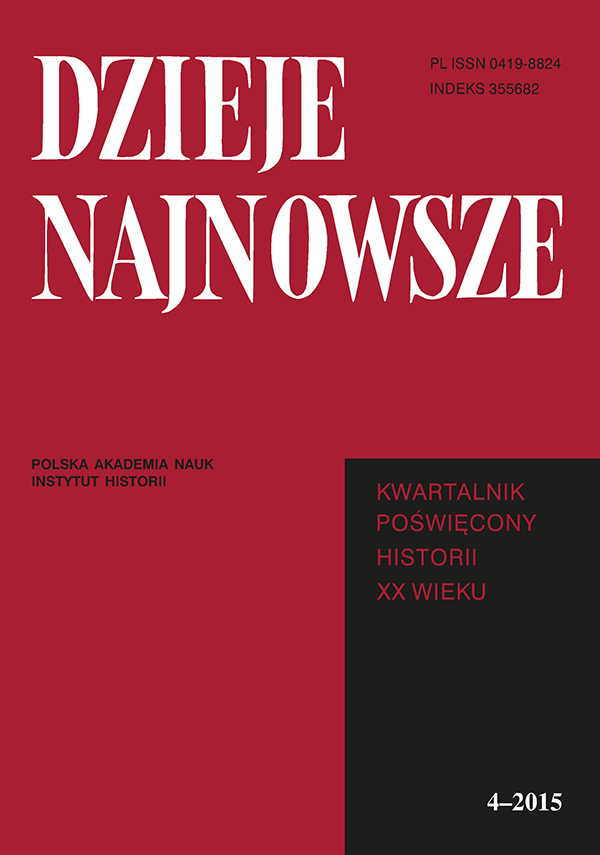Polityczne sterowanie systemem wymiaru sprawiedliwości PRL po 1956 r. Casus funkcjonowania „zespołów” do spraw procesów politycznych w latach 1964–1982
DOI:
https://doi.org/10.12775/DN.2015.4.07Abstrakt
Political Steering of the Administration of Justice in People’s Poland until 1956. The Functioning of “Teams” Dealing with Political Trials in 1964–1982This article describes the mechanism of the impact exerted by Party authorities upon the form, course, and outcome of numerous political trials conducted after 1956. The presented findings are based on the results of an extensive survey carried out in the documentation of the Central Committee of the Polish United Workers’ Party (CC PUWP), the General Prosecutor’s Office of the People’s Republic of Poland, the Ministry of Justice, the Ministry of Internal Affairs, and the Security Service. Preserved documents makes it possible to prove and characterise Party influence upon trials involving several most important political cases during the 1964–1982 period: the trials of Kuroń and Modzelewski, the student opposition Komandosi and Taternicy, the conspiratorial Ruch organisation, KSS–KOR (Social Self–defence Committee – KOR/ Workers Defence Committee/), KPN (Confederation for an Independent Poland), and the so– called Jedenastka, i.e. the leaders of “Solidarity” and chief advisers of the trade unions – members of the democratic opposition. The analysed sources testify that the ultimate shape of the indictments and the course of a given trial were established during meetings held by a small group, often described as a “team”. Such “team” sessions were attended by representatives of the CC PUWP (the Administration Department of the CC), the Prosecutor’s Office, the Ministry of the Interior, and often the representatives of the Ministry of Justice or even the Supreme Court. Much indicates that these solutions functioned for years to come and were of a systemic character. They guaranteed taking into account the political interests of the Political Bureau and a matching staging of the trials’ course.
Pobrania
Opublikowane
Jak cytować
Numer
Dział
Statystyki
Liczba wyświetleń i pobrań: 739
Liczba cytowań: 0



